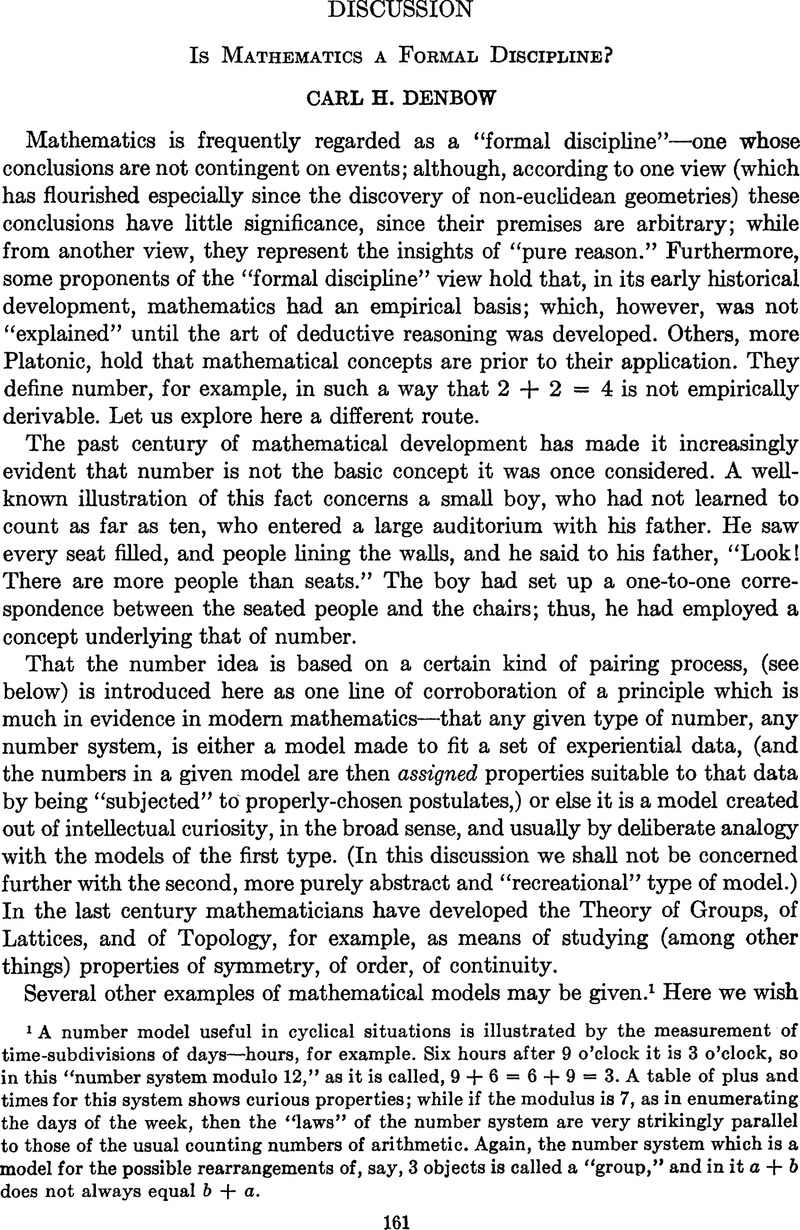No CrossRef data available.
Article contents
Is Mathematics a Formal Discipline?
Published online by Cambridge University Press: 14 March 2022
Abstract

- Type
- Discussion
- Information
- Copyright
- Copyright © Philosophy of Science Association 1955
References
1 A number model useful in cyclical situations is illustrated by the measurement of time-subdivisions of days—hours, for example. Six hours after 9 o'clock it is 3 o'clock, so in this “number system modulo 12,” as it is called, 9 + 6 = 6 + 9 = 3. A table of plus and times for this system shows curious properties; while if the modulus is 7, as in enumerating the days of the week, then the “laws” of the number system are very strikingly parallel to those of the usual counting numbers of arithmetic. Again, the number system which is a model for the possible rearrangements of, say, 3 objects is called a “group,” and in it a + b does not always equal b + a.


